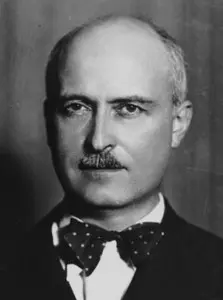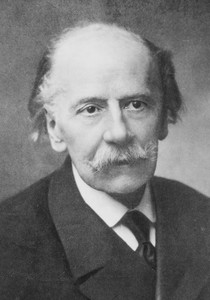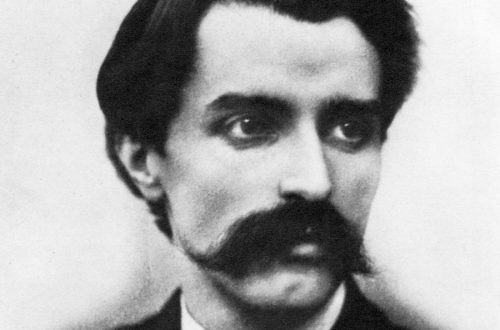
Jacques Ibert (Jacques Ibert) |
Contents
Jacques Ibert

Jacques Ibert (full name Jacques Francois Antoine Ibert, August 15, 1890, Paris – February 5, 1962, Paris) was a French composer.
Iber was born to Antoine Ibert, a salesman, and Marguerite Lartigue, second cousin of Manuel de Falla. At the age of four, he began learning to play the violin and piano under the guidance of his mother. At the age of twelve, he read a textbook of harmony by Reber and Dubois, began to compose small waltzes and songs. After leaving school, he got a job as a warehouse manager to help his father, whose business at that time was not very successful. Secretly from his parents, he privately studied solfeggio and music theory, and also attended acting classes by Paul Moonet. Mune advised the young man to choose a career as an actor, but Iber’s parents did not support this idea, and he decided to devote himself entirely to music.
In 1910, on the advice of Manuel de Falla, Iber applied to the Paris Conservatoire and was admitted to it as a “listener”, and a year later – for full-fledged training in the classes of counterpoint André Gedalge, harmony – Emile Pessar, composition and orchestration – Paul Vidal . Among his classmates were the future famous composers Arthur Honegger and Darius Milhaud. Ibert made a living giving private lessons, playing the piano in the cinemas of Montmartre, and composing pop songs and dances (some of which were published under the pseudonym William Bertie).
With the outbreak of the First World War, Iber, who was not suitable for military service for health reasons, nevertheless went to the front in November 1914 as an orderly. In 1916, he fell ill with typhus and was forced to return to the rear. For a short time, he joins the New Young composers group created by Eric Satie and participates in several concerts with Georges Auric, Louis Duray and Arthur Honegger. A year later, Iber joined the Navy, where he soon received the rank of officer and served in Dunkirk for several years. In October 1919, not yet demobilized, Iber takes part in the competition for the Rome Prize with the cantata “The Poet and the Fairy” and immediately receives the Grand Prix, which allows him to live in Rome for three years. In the same year, Ibert marries Rosette Weber, daughter of the painter Jean Weber. In February 1920, the couple moved to Rome, where the composer wrote the first major work for the orchestra – “The Ballad of Reading Prison” based on the poem of the same name by Oscar Wilde. The Roman period of creativity includes the opera “Perseus and Andromeda”, the suites “History” for piano and “Seaports” for orchestra. Only constant moving and pure coincidence led to the fact that in 1920 the music critic Henri Collet, “counting” young composers, did not include Jacques Ibert in the famous and widely publicized group of “Six”.
In 1923, the composer returned to Paris, where he was active as a composer, and also taught orchestration at the Universal School. Three years later, Iber buys a XNUMXth-century house in Normandy, where he spends several months a year, wanting to get away from the bustle of the city. In this house, he will create his most famous compositions: Divertimento for orchestra, the opera King Yveto, the ballet Knight Errant and others.
The year 1927 was marked by the appearance of the opera “Angelica”, staged in Paris and bringing its author world fame. In subsequent years, Iber worked a lot on music for theatrical productions and films, among which Don Quixote (1932) with Fyodor Chaliapin in the title role stands out. The composer also creates a number of orchestral works, including the Sea Symphony, which, according to his will, was not to be performed until his death.
In 1933-1936, Iber wrote the Flute Concerto and Chamber Concertino for Saxophone, as well as two large ballets with singing (commissioned by Ida Rubinstein): Diana of Poitiers and Knight Errant. Undertakes a large tour of Europe, performs with his works as a conductor, directs the first production of “King Yveto” in Düsseldorf. Together with Honegger, the opera “Eaglet” is being created.
In 1937, Iber received the post of director of the French Academy in Rome (for the first time since 1666, a musician was appointed to this position). He again turns to joint work with Honegger: the operetta “Baby Cardinal”, staged in Paris, was a great success.
From the start of World War II, Ibert served as Naval Attaché at the French Embassy in Rome. On June 10, Italy entered the war, and the next day, Iber and his family left Rome on a diplomatic train.
In August 1940, Ibert was dismissed, by a special decree of the Vichy government, his name was deleted from the list of naval officers, and his works were forbidden to be performed. Over the next four years, Iber lived in a semi-legal position, continuing to compose (in 1942 he graduated from the String Quartet, which had begun five years earlier). In October 1942, Iber managed to move to Switzerland, where he began to have serious health problems (sepsis).
After the liberation of Paris in August 1944, Ibert returned to France. From 1945 to 1947 the composer again headed the French Academy in Rome. Iber again writes music for theatrical productions and films, ballets, conducts his own compositions.
Since the 1950s, Iber began to experience problems with the cardiovascular system, which forced him to stop performing in concert and teaching. In 1960 the composer moved from Rome to Paris.
Iber died on February 5, 1962 from a heart attack. In the last years of his life, he worked on the Second Symphony, which remained unfinished. The composer is buried in the Passy cemetery.
Iber’s work combines neoclassical and impressionistic elements: clarity and harmony of form, melodic freedom, flexible rhythm, colorful instrumentation. Iber is a master of musical divertissement, a light joke.
Compositions:
operas – Perseus and Andromeda (1923 post. 1929, tr “Grand Opera”, Paris), Gonzago (1929, Monte Carlo; 1935, tr “Opera comic”, Paris), King Yveto (1930, tr- p “Opera Comic”, Paris), Eaglet (based on the play of the same name by E. Rostand, together with A. Honegger, 1937, Monte Carlo); ballets – Encounters (the score was created on the basis of the piano suite, 1925, the Grand Opera, Paris), Diane de Poitiers (choreography by M. Fokine, 1934, ibid.), Love Adventures of Jupiter (1946, “T-r Champs Elysees, Paris), Knight Errant (based on Cervantes’ Don Quixote, music from the film Don Quixote, choreography by S. Lifar, 1950, Grand Opera, Paris), Triumph of Chastity ( 1955, Chicago); operetta – Baby Cardinal (together with Honegger, 1938, tr “Buff-Parisien”, Paris); for soloists, choir and orchestra – cantata (1919), Elizabethan suite (1944); for orchestra – Christmas in Picardy (1914), Harbors (3 symphonic paintings: Rome – Palermo, Tunisia – Nephia, Valencia, 1922), Enchanting Scherzo (1925), Divertimento (1930), Suite Paris (1932), Festive Overture (1942) , Orgy (1956); for instrument and orchestra – Concerto symphony (for oboe and strings, 1948), concertos (for flute, 1934; for wolves and wind instruments, 1925), Chamber concertino (for saxophone, 1935); chamber instrumental ensembles – trio (for skr., wlch. and harp, 1940), string quartet (1943), wind quintet, etc.; pieces for piano, organ, guitar; songs; music and performance drama theater – “The Straw Hat” by Labish (1929), “July 14” by Rolland (together with other French composers, 1936), “A Midsummer Night’s Dream” by Shakespeare (1942), etc .; music for films, incl. Don Quixote (with the participation of F. I. Chaliapin); music for radio shows – The Tragedy of Doctor Faust (1942), Bluebeard (1943), etc.




